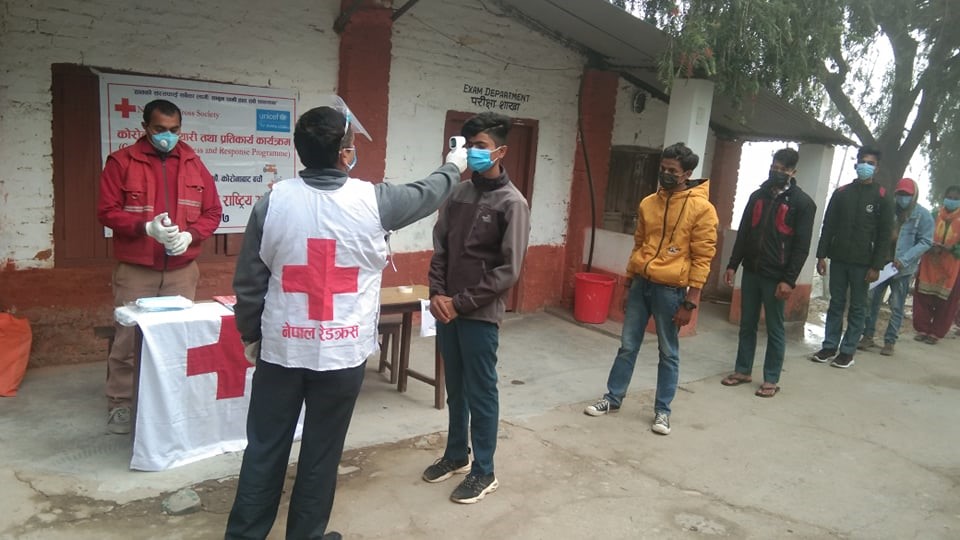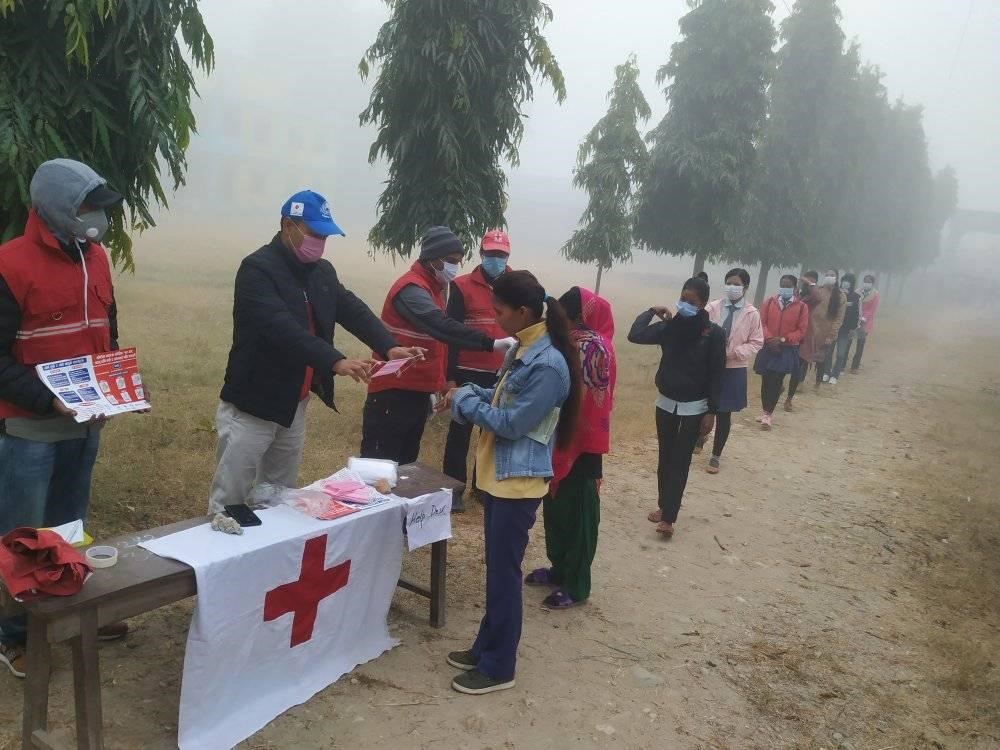
It was a cold, foggy morning in Gadhwa Rural Municipality in Dang District in western Nepal when students started to arrive at the entrances of their schools to sit for the grade 12 exams. Before they can enter, however, they are met by a team from Nepal Red Cross Society (NRCS), who had set up help desks at the entrances.

With the students requested to stand in a line while maintaining distance, the Red Cross volunteers ensured each of the examinees sanitize their hands, wear a mask properly and only enter into the exam center once they have their temperature checked.
This has been a common sight in various schools around Gadhwa in the very days. With the Government of Nepal’s National Examination Board having decided to proceed with conducting the grade 12 exams, in coordination with local governments and following health protocols to prevent the spread of COVID-19, students found themselves back in their classrooms after many months.
Given the continued threat posed by the pandemic, it was to ensure the safety of these students that the help desks were established – as part of a collaboration between the Health and Education Sections of the Municipality, the local health post, AMDA Nepal, NRCS and UNICEF to prevent the spread of COVID-19 and raise awareness about key public health measures.
“The help desk has given us a sense of confidence while conducting the exams because all students were being checked for fever, had their hands cleaned and were wearing masks,” says Dam Bahadur Budhathoki, a teacher at Chainpur Secondary School, “We feel safer.”
